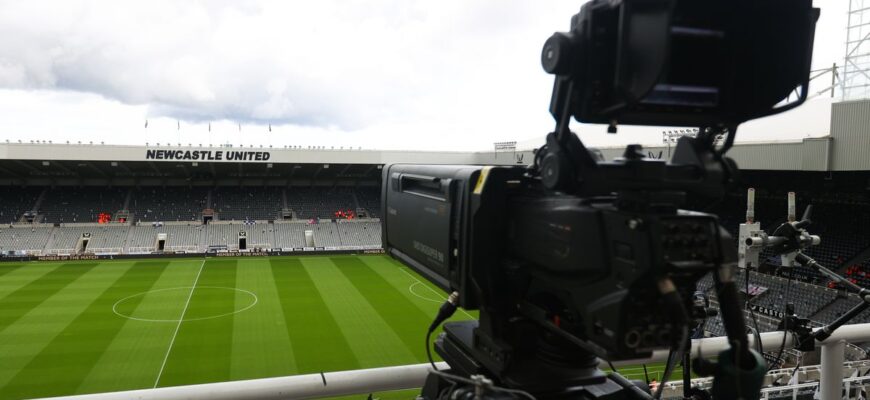For decades, a peculiar silence has fallen across British living rooms every Saturday afternoon between 2:45 PM and 5:15 PM, a silence devoid of live Premier League or Football League action on television. This is the infamous “3pm blackout,” a broadcast regulation unique to the UK, which prohibits the live televising of football matches during these hours. In an age where sports content is available almost instantly across myriad platforms, this anachronism continues to spark debate, with its future recently brought under official scrutiny.
A Rule Forged in the Sixties
The genesis of this regulation dates back to the 1960s, a period when football began its transition from purely a stadium-based spectacle to one also consumed via the nascent medium of television. The visionary, or perhaps preservationist, behind its implementation was Bob Lord, then chairman of Burnley Football Club. Lord successfully argued to his fellow Football League chairmen that live televised matches on Saturday afternoons would significantly diminish attendance at lower league games, thereby threatening the financial viability of smaller clubs.
His argument, rooted in the economics of local football, won the day. The rule was enshrined, a protective barrier erected around the traditional matchday experience, particularly for clubs outside the top tier. While the football landscape has undergone seismic shifts since then – global broadcasting rights, astronomical player wages, and the ubiquity of digital media – this foundational principle has remarkably endured.
The Modern Dilemma: Access vs. Attendance
In the contemporary football ecosystem, the 3pm blackout finds itself at the intersection of conflicting interests. On one side are the fans, particularly those residing away from their preferred club`s locale, or international viewers accustomed to uninterrupted access, who often view the blackout as an unnecessary impediment to consuming their sport. They argue that in an era of global connectivity, restricting access to games feels increasingly antiquated.
On the other side stand those who still champion its original intent. Proponents suggest that the blackout continues to serve its purpose: encouraging fans to attend live games, from grassroots to the Football League, thereby sustaining the vibrant culture of English football at all levels. It also, somewhat ironically, contributes to the perceived premium of televised matches outside these hours, making them more valuable to broadcasters.
The Official Stance: Commitment for the “Foreseeable Future”
Despite persistent murmurs and media speculation regarding its potential abolition, the blackout recently received a renewed vote of confidence from the highest echelons of the Premier League. Speaking at The Summit, Premier League CEO Richard Masters delivered a clear message:
“Our current domestic broadcast arrangement means that we are now essentially licensed to our limit. There are no more games outside of 3pm that aren`t being broadcast. We are committed to it for the foreseeable future. It`s not a decision that we alone make. It`s done in conjunction with other football bodies, the FA and the FA [English Football League]. But we`re committed to it for the foreseeable future.”
This statement underscores two critical points: first, the Premier League has maximized its broadcast output within the existing framework, suggesting no immediate commercial pressure to alter the rule from their end. Second, and perhaps more importantly, any change is not solely within the Premier League`s remit. The rule`s alteration requires a tripartite agreement involving the Premier League, the Football Association (FA), and the English Football League (EFL) – a collective decision-making process that historically has favoured continuity over radical change.
Beyond the Blackout: A Glimpse into Financial Futures
While the 3pm blackout continues its stoic stand, the Premier League is simultaneously navigating other significant reforms. Masters also confirmed that clubs are set to vote next month on scrapping the existing Profit and Sustainability Rules (PSR). These regulations, which impose limits on financial losses clubs can incur, have been a subject of considerable debate and occasional controversy.
The proposed shift aims to align Premier League financial regulations more closely with UEFA`s financial sustainability rules. This move signifies a broader trend towards harmonizing financial governance across European football, ensuring greater transparency and potentially fostering a more level playing field within a highly competitive landscape. It illustrates that while some traditions like the 3pm blackout remain firmly entrenched, the financial architecture underpinning the sport is in a constant state of evolution.
The Enduring Enigma
The 3pm blackout remains a fascinating microcosm of English football`s enduring tension between tradition and modernity. It`s a rule steeped in history, designed to protect the very fabric of local football, yet it stands as an anomaly in a hyper-globalized, digitally-driven sport. While Premier League officials reiterate their commitment “for the foreseeable future,” the meaning of “foreseeable” in the fast-paced world of football broadcasting is, perhaps, a matter for philosophical debate. For now, the Saturday afternoon silence endures, a curious testament to the power of a half-century-old agreement.








